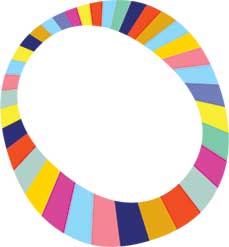Every year on May 28, the world recognizes Menstrual Hygiene Day. The mission of Menstrual Hygiene Day is “to create a period friendly world.” It’s a day that advocates for reduced stigma around periods, better education and more affordable menstrual products.
While the intent is good – after all, why should something that half the world experiences be stigmatized? – the use of the word hygiene can perpetuate some outdated ideas about periods and people who have them.
Menstruation isn’t a hygiene issue
The word hygiene implies something delicate, personal and private; something we must take care of quietly to clean up something dirty or gross. It also puts the onus on people who menstruate to deal with it silently, rather than on everyone (men and boys included!) to understand more about it.
While Menstrual Hygiene Day is advocating for positive changes in how we relate to menstruation, the use of the word hygiene can perpetuate notions that periods are something to be scrubbed away, hidden or fixed.
But here’s the truth: Menstruation is completely normal. Half the population experiences it. Virtually everyone has someone who menstruates in their life – a partner, mother, sister, friend – who they care about. It’s a reality to be respected and understood, not a problem to be solved.
Words matter
Language impacts how we feel and what we believe! When we frame menstruation delicately, in terms of hygiene instead of health, access or education, it keeps it in the shadows where people are more likely to feel shame about it. Shame and embarrassment make it harder for people to learn about periods, talk about them or get the support they need to manage them.
This is especially true in schools, where sex education is still inconsistent and often leaves out the fact that understanding menstruation isn’t just for girls. Everyone, regardless of gender, deserves to know how the body works. When we only talk to girls about periods, or teach them about it separately from boys, we reinforce gender stereotypes and miss the chance to build empathy and knowledge.
That knowledge gap has real-world impacts: A Plan International UK survey found that 1 in 3 boys believe believe periods should be kept secret and that 70% of boys had heard another boy or man make a negative or nasty comment about menstruation. These feelings of discomfort or even disgust are learned, and language plays a large part in how boys and men of all ages learn about menstruation.
If we want a world where people feel confident instead of shameful about their body, we need to start with honest, accurate language. Menstruation is a biological process, not a hygiene issue. So let’s call it what it is: a normal, healthy part of life.
Stigma isn’t the only issue.
Stigma around menstruation has real impact, but it’s not the only issue. The lack of access to affordable menstrual products, called period poverty, is a serious barrier for many. A Canadian study found that one in four Canadians who menstruate say they had to choose between buying period products and other essentials like food or rent in the last year.
Not having access to period products means that people have to use other methods like towels, toilet paper, leaves or even mud to manage their period. This puts someone at increased risk of infection. Pads and tampons are not luxuries; they are essentials for billions of people.
The Centre for Sexuality offers free menstrual products at our office, as do many Calgary Public Library and City of Calgary locations. No one should have to miss school, work or other commitments because they can’t afford period products.
More than hygiene
On this Menstrual Hygiene Day, we push for more than awareness. We’re pushing for change in language, in education and in access to period products. Because menstruation isn’t something that needs more hygiene. It’s something that needs more education, understanding and normalcy.

